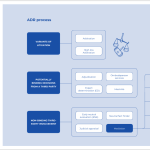In our everyday lives, disputes are a common occurrence. They arise in various settings—at home, in the workplace, in business dealings, and even between nations. But what exactly is a dispute? Understanding its meaning and implications is crucial, especially for those looking to resolve conflicts efficiently and amicably.
Defining a Dispute
A dispute is a disagreement or conflict between two or more parties, typically arising from differing needs, interests, opinions, or expectations. It often involves a claim made by one party that is opposed or challenged by another. Disputes can range from minor misunderstandings to complex legal battles.
In essence, a dispute occurs when communication breaks down, leading to a clash that requires resolution to restore harmony.
Types of Disputes
Disputes can be categorized into several types, depending on their nature and the context in which they arise:
- Personal Disputes:
These include disagreements between family members, friends, or neighbors. Common examples are conflicts over inheritance, property boundaries, or lifestyle choices. - Commercial Disputes:
Businesses often face disputes related to contracts, intellectual property, or partnerships. For instance, a breach of contract may lead to a legal battle between two companies. - Employment Disputes:
Conflicts between employers and employees often revolve around wages, workplace policies, or unfair treatment. These disputes can affect productivity and morale. - Community Disputes:
Local communities may experience conflicts over shared resources, zoning issues, or environmental concerns. - International Disputes:
On a global scale, disputes can occur between nations, often involving territorial claims, trade disagreements, or human rights issues.
Why Do Disputes Arise?
Disputes usually stem from:
- Miscommunication: A lack of clarity or misunderstanding can lead to disagreements.
- Conflicting Interests: Parties may have opposing goals or desires that are difficult to reconcile.
- Unmet Expectations: When one party feels let down by another, tensions can escalate into disputes.
- Cultural Differences: Variations in beliefs, customs, or values can create misunderstandings.
The Importance of Resolving Disputes
Unresolved disputes can have far-reaching consequences, such as damaged relationships, financial losses, or prolonged stress. Effective dispute resolution is essential to restore trust, maintain relationships, and foster collaboration.
Methods of Dispute Resolution
There are several approaches to resolving disputes, each suited to different scenarios:
- Negotiation:
Parties communicate directly to reach a mutually acceptable solution without involving a third party. - Mediation:
A neutral third-party mediator facilitates discussions, helping parties find common ground and resolve the dispute amicably. - Arbitration:
In this formal process, an arbitrator listens to both sides and makes a binding decision. It is often used in commercial disputes. - Litigation:
When disputes cannot be resolved through alternative means, parties may take the matter to court, where a judge or jury delivers a verdict. - Collaborative Law:
This process involves lawyers and clients working together to settle disputes without resorting to litigation.
A dispute, at its core, is a clash of ideas or interests that disrupts harmony. While conflicts are inevitable, understanding the nature of disputes is the first step toward resolving them effectively. By choosing the right method of resolution—whether negotiation, mediation, or arbitration—parties can save time, preserve relationships, and achieve fair outcomes.
At Mediator.pk, we believe in the power of amicable solutions. Explore our resources and services to learn how Alternative Dispute Resolution (ADR) can help you navigate conflicts with ease.



